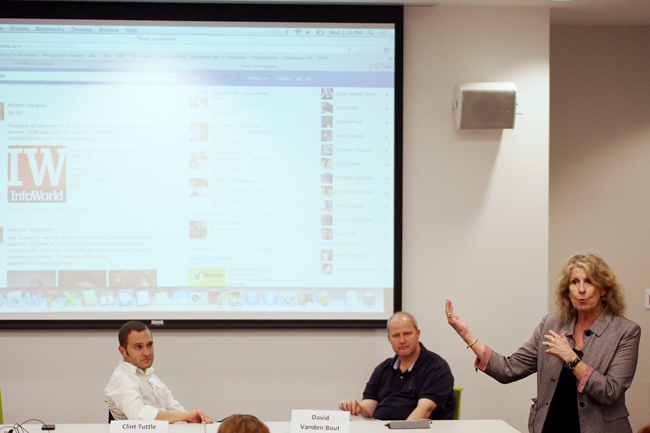Today, millions of Americans will head to the ballot box to make their voices heard. Like any other election, they will head proudly home, satisfied in fulfilling their civic duty once again. Eager to hear predicted results, they will gather their family ’round the old boob tube, and then … turn their attention promptly back to their respective smartphones.
If you think this sounds a bit unlike elections of the past, you would be completely correct. The rise of the smartphone is certainly not something that happened overnight, but its dominance is poised to have an extreme impact on this year’s midterm election in particular. Experts say 28 percent of Americans — more than double that of last election — now use smartphones for election coverage, and almost 20 percent use social media to monitor their candidates of choice. This is a significant portion of voters, one that aspiring politicians cannot afford to overlook. With the rise of share-heavy sites such as Facebook, Twitter and even Instagram, the statistics have sent our elected officials a message they can’t miss: When it comes to social media, either get on, or get out of office.
So why are midterm elections more susceptible to social media’s impact than presidential races? Why must we continue to belabor our sweet little thumbs, scouring sites when teleprompted newscasters give us the exact same information? The experts remain flabbergasted, and unlike the expectations of their political counterparts, their explanations cannot be condensed into a mere 140 characters.
“Today, people in the political world talk about having Twitter strategies, but if you had talked about those things even in 2008, you would have been laughed out of the room,” said Teddy Goff, strategist and director of both of Obama’s digital campaigns. “It just wasn’t part of the vocabulary.”
Goff said he believes the biggest impact of social media is that it “changes the role of the average voter.” Social media-heavy campaigns offer access, feedback and engagement to all citizens — not just the ones who can afford it by donating to campaigns. And though campaigns still seek to fulfill the same basic goals and objectives, the rise in social media seems to ensure that those running for office are held to a higher and more stringent standard than representatives of the past.
These effects have certainly been felt in Texas’ gubernatorial election, as both state Sen. Wendy Davis, D-Fort Worth, and Attorney General Greg Abbott, the respective Democratic and Republican candidates for governor, were under fire for several controversial choices on the campaign trail. Voters were outraged at Davis’ ad that insensitively highlighted Abbott’s wheelchair confinement, and others negatively reacted to a decision by the attorney general about the Texas Enterprise Fund. These slip ups may have gone unnoticed just four years ago — but now, even the slightest sleight of hand cannot fly under the radar.
“We feel that people want to have a sense of being connected,” Goff said. “It’s important to voters … [to have] a sense of being inspired in what they were participating in.”
In fact, many voters prioritize social media for its “reliability.” A whopping 33 percent say they are likely to rely more heavily on these types of political outreach and enjoy avoiding the “filter” of larger news networks.
And even for politicians, the benefit social media brings to a campaign cannot be overlooked. “You get to represent your own message,” said Peter Chow-White, associate communications professor at Simon Fraser University. “You’re not framed by any media outlet whatsoever. And you have a direct line to voters … It provides great opportunity in a campaign.” It seems that our representatives embrace this form of communication as much as we do — and they are certainly better politicians for it. Social media removes the barrier between politicians and the electorate, and it can interact, inform and engage more candidly in ways that were previously impossible.
So this election day, head to the ballots with your head held high and your smartphone in hand. And as you hear the satisfying “pop” of the Twitter feed refreshing itself, rest assured that many miles away, there is a devastatingly hopeful, formally-clad candidate who is very likely doing the same.
Deppisch is a government senior from League City. Follow her on Twitter @b_deppy.





















